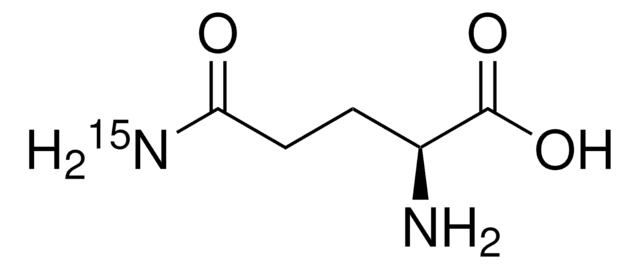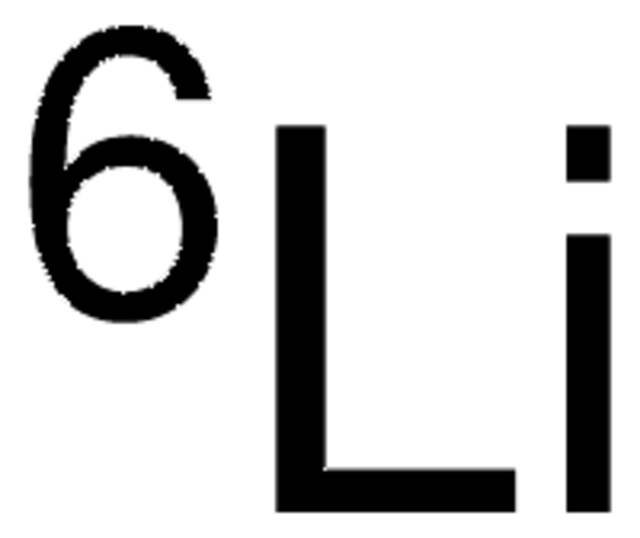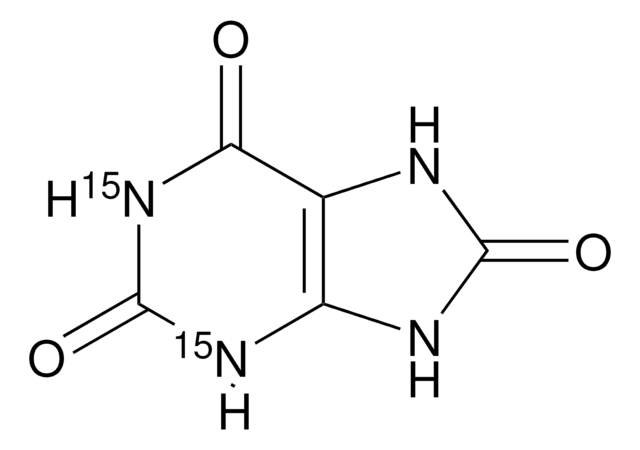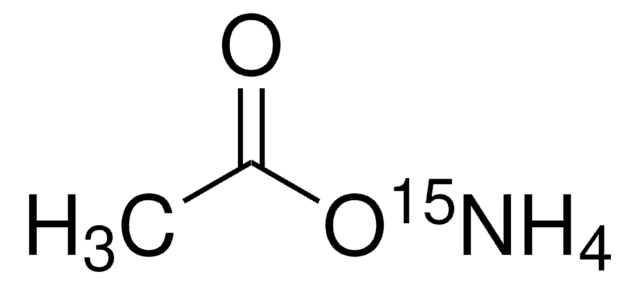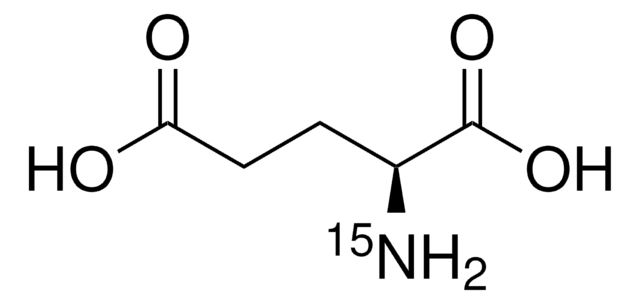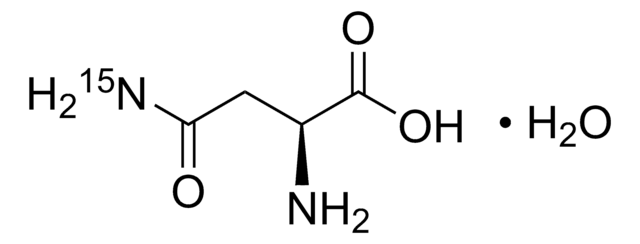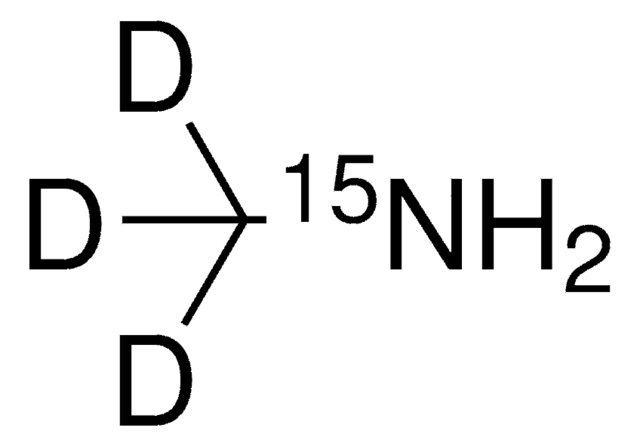All Photos(1)
About This Item
Linear Formula:
H2NCO(CH2)2CH(15NH2)CO2H
CAS Number:
Molecular Weight:
147.14
MDL number:
UNSPSC Code:
12352209
PubChem Substance ID:
NACRES:
NA.12
Recommended Products
isotopic purity
98 atom % 15N
Quality Level
assay
99% (CP)
form
solid
optical activity
[α]25/D +33.0°, c = 2 in 5 M HCl
mp
185 °C (dec.) (lit.)
mass shift
M+1
SMILES string
NC(=O)CC[C@H]([15NH2])C(O)=O
InChI
1S/C5H10N2O3/c6-3(5(9)10)1-2-4(7)8/h3H,1-2,6H2,(H2,7,8)(H,9,10)/t3-/m0/s1/i6+1
InChI key
ZDXPYRJPNDTMRX-OGWWSMAPSA-N
Related Categories
Packaging
This product may be available from bulk stock and can be packaged on demand. For information on pricing, availability and packaging, please contact Stable Isotopes Customer Service.
Storage Class
11 - Combustible Solids
wgk_germany
WGK 1
flash_point_f
Not applicable
flash_point_c
Not applicable
Certificates of Analysis (COA)
Search for Certificates of Analysis (COA) by entering the products Lot/Batch Number. Lot and Batch Numbers can be found on a product’s label following the words ‘Lot’ or ‘Batch’.
Already Own This Product?
Find documentation for the products that you have recently purchased in the Document Library.
Customers Also Viewed
Min Yuan et al.
Nature protocols, 14(2), 313-330 (2019-01-27)
Targeted tandem mass spectrometry (LC-MS/MS) has been extremely useful for profiling small molecules extracted from biological sources, such as cells, bodily fluids and tissues. Here, we present a protocol for analysing incorporation of the non-radioactive stable isotopes carbon-13 (13C) and
Vanessa Byles et al.
Molecular metabolism, 53, 101309-101309 (2021-07-26)
The mechanistic target of rapamycin complex 1 (mTORC1) is dynamically regulated by fasting and feeding cycles in the liver to promote protein and lipid synthesis while suppressing autophagy. However, beyond these functions, the metabolic response of the liver to feeding
Our team of scientists has experience in all areas of research including Life Science, Material Science, Chemical Synthesis, Chromatography, Analytical and many others.
Contact Technical Service